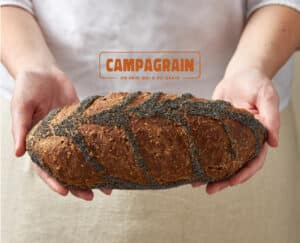
Dans le cadre de notre démarche pour une alimentation plus responsable, nommée « A TABLE » , nous nous dirigeons depuis plusieurs années vers un approvisionnement en œufs plus qualitatifs et plus respectueux du bien-être animal.
Les œufs plein air : un sujet important pour les consommateurs
Depuis plusieurs années, les consommateurs se révèlent être de plus en plus sensibles à la cause animale. Dans cette optique, ils sont nombreux à privilégier les œufs issus de poules ayant été élevées en plein air.
Plusieurs chiffres mettent d’ailleurs en lumière cette tendance :
• 89% des Français sont favorables à l’interdiction de l’élevage de poules en cage*
• 62% des Français privilégient les modes d’élevage de poules bio et plein air, quel que soit le prix**
• 88% des Français sont aidés par les informations sur le mode d’élevage des poules apposé sur les boîtes d’œufs en magasin et 86% se disent rassurés par ces informations**
Nos engagements concrets en matière d’œufs plein-air
Depuis plusieurs années, Grands Moulins de Paris a déjà entrepris une transition vers des œufs et ovoproduits provenant d’élevages alternatifs aux cages.
Aujourd’hui, notre engagement va encore plus loin avec 100% des ovoproduits nécessaires à la fabrication de nos produits meuniers, Francine ou pour nos clients professionnels, provenant d’élevages français en plein air.
Du côté de Francine, ces engagements concernent les deux gammes de produits comprenant des œufs dans leurs ingrédients : les farines à brioche et les préparations (pour crêpes, pancakes et gaufres).
Concernant les Recettes de Mon Moulin, les œufs et ovoproduits passent progressivement en œufs issus de la ponte au sol. L’objectif est de passer l’ensemble des références de la marque avec cette exigence pour 2025.
Une démarche qui s’étale sur plusieurs années
Anne-Vanessa PROFIZI, Directrice Innovation Produit, explique que « cette démarche s’étale sur plusieurs années, avec différents jalons d’engagements. Cela permet notamment aux filières d’élevages en plein air de se mettre en place pour nous garantir un approvisionnement de qualité et sécurisé ».
Elle souligne également l’importance de la rigueur nécessaire sur ce type d’approvisionnement car « c’est toute une filière qui est mobilisée, il faut donc s’assurer que chaque maillon assure son rôle pour que l’engagement collectif existe ».
Une démarche qui s’étale sur plusieurs années
Le passage en œufs plein air a demandé également un important travail de sourcing en amont dont Isabelle ETOURNEAU, Responsable Achat Matières Premières & Ingrédients, explique les tenants et les aboutissants :
« Nous sélectionnons nos fournisseurs selon leur aptitude technologique, leur notoriété et leur fiabilité, dans le respect de nos exigences en termes de sécurité alimentaire et de traçabilité, et bien sûr leur capacité à nous livrer selon les conditions d’achat négociées.
Les systèmes d’élevage dits alternatifs ont nécessité d’importantes réformes depuis leur mise en place et de gros investissements pour les éleveurs afin de respecter la législation et les normes de bien-être animal en vigueur. Ainsi, avec notre fournisseur actuel d’œufs en poudre, nous sommes passés sur ces modes alternatifs de façon programmée : en Ponte au sol à partir du 1er juillet 2020 et en Plein Air à partir du 1er juillet 2021. Il s’agit du seul fournisseur en France à nous assurer des œufs « Plein Air » issus de contrats d’élevage en filières.
Ces contrats respectent un cahier des charges bien précis avec des modes d’élevage spécifiques. Il s’agit par exemple de normes concernant la taille des bâtiments et leur exposition, la densité de l’élevage, les modes de transfert (qui doivent assurer la biosécurité), la gestion de la production, le nettoyage… En passant par la réglementation des nids, des perchoirs, des parcours des poules dans l’espace… jusqu’à leur alimentation.
Ces élevages sont contrôlés régulièrement et la traçabilité peut être assurée, de l’œuf coquille chez le fournisseur (scanné avant la casse) jusqu’aux couvoirs. Des visites d’usine et d’un élevage peuvent être organisées si besoin afin de mieux comprendre les contraintes de la filière. »
Mise à jour mars 2022 :
La situation épidémique relative à l’Influenza Aviaire Hautement Pathogène (IAHP) sur le territoire national a imposé un confinement des volailles depuis le 10 septembre 2021, pour les premiers départements concernés.
La Réglementation européenne (Règlement 2017/2168, modifiant le Règlement 589/2008) autorise le maintien de l’indication « œufs de poules élevées en plein air » durant une période continue maximale de 16 semaines depuis la date de confinement des poules pondeuses.
Sur accord du Ministère de l’Agriculture, le Ministère de l’Economie et des Finances (DGCCRF) octroie, pour la France, une dérogation visant à autoriser le maintien sur les étiquetages de la mention « œufs de poules élevées en plein air », au-delà de l’échéance de la période couverte par la Règlementation de l’Union Européenne et pendant toute la période d’application des mesures de claustration des volailles imposées par les autorités sanitaires.
*Étude réalisée par YouGov pour L214 / Février 2018
**Consultation réalisée par l’INC et le CNA sur l’étiquetage des modes d’élevage / Mai 2019


